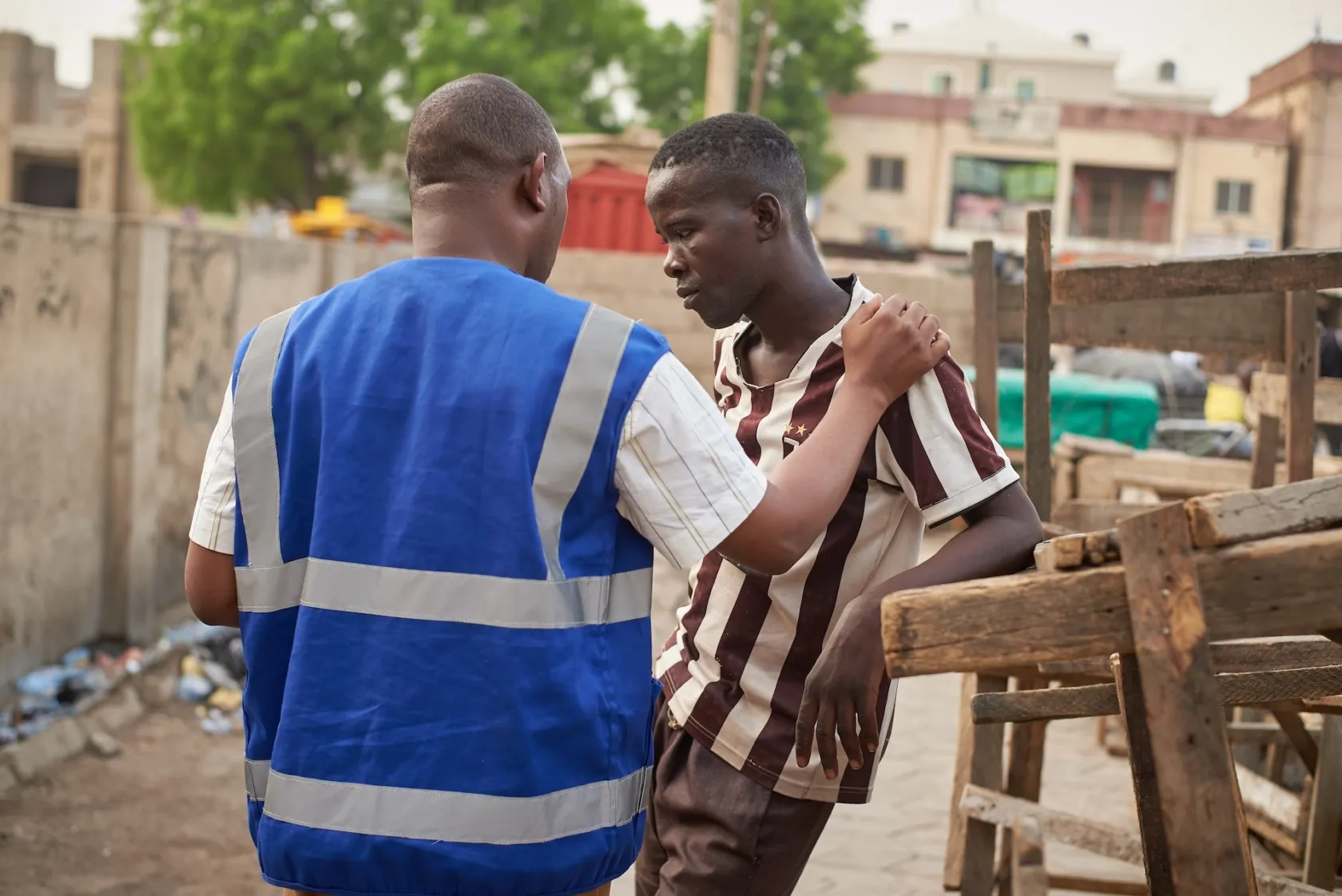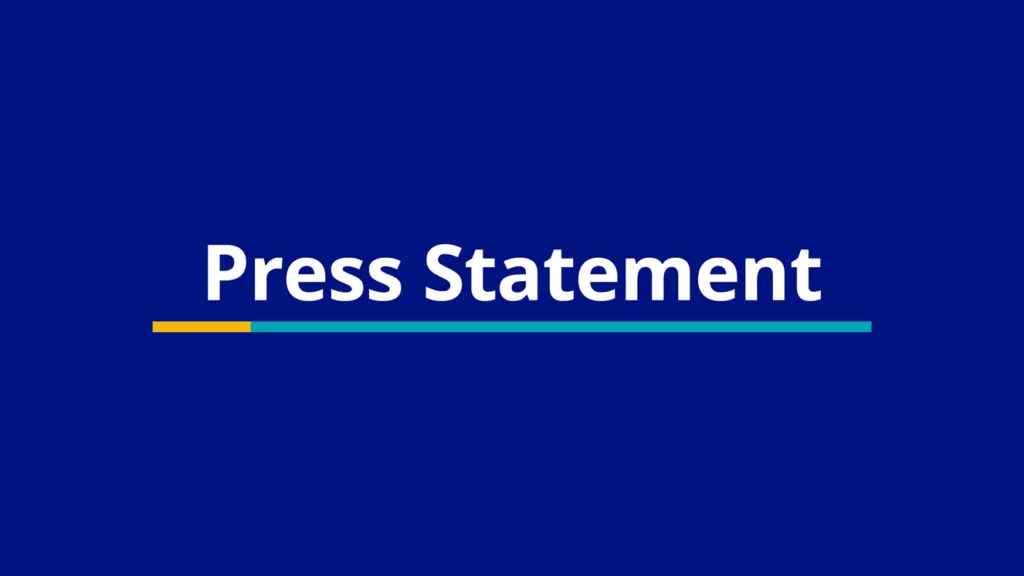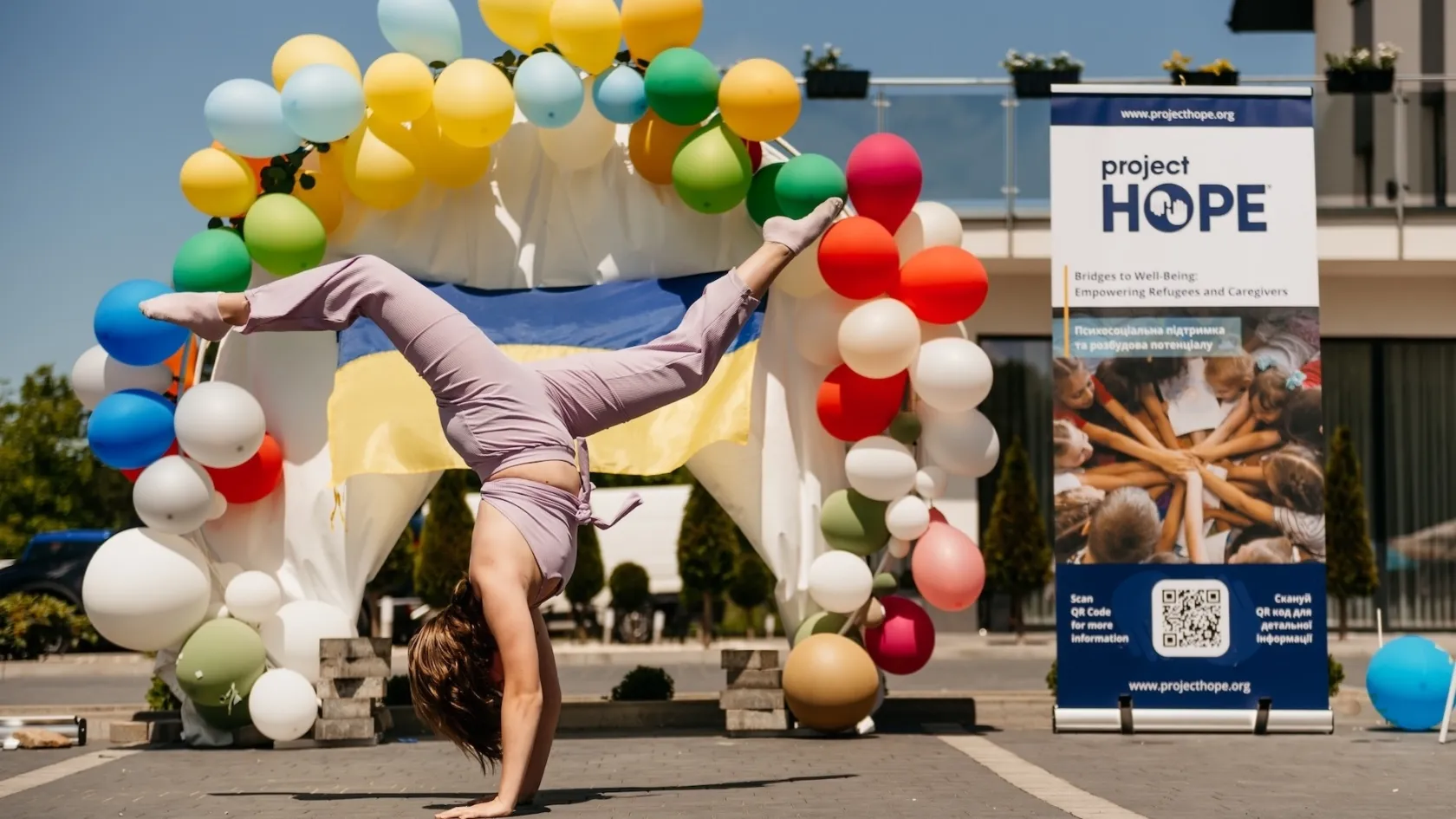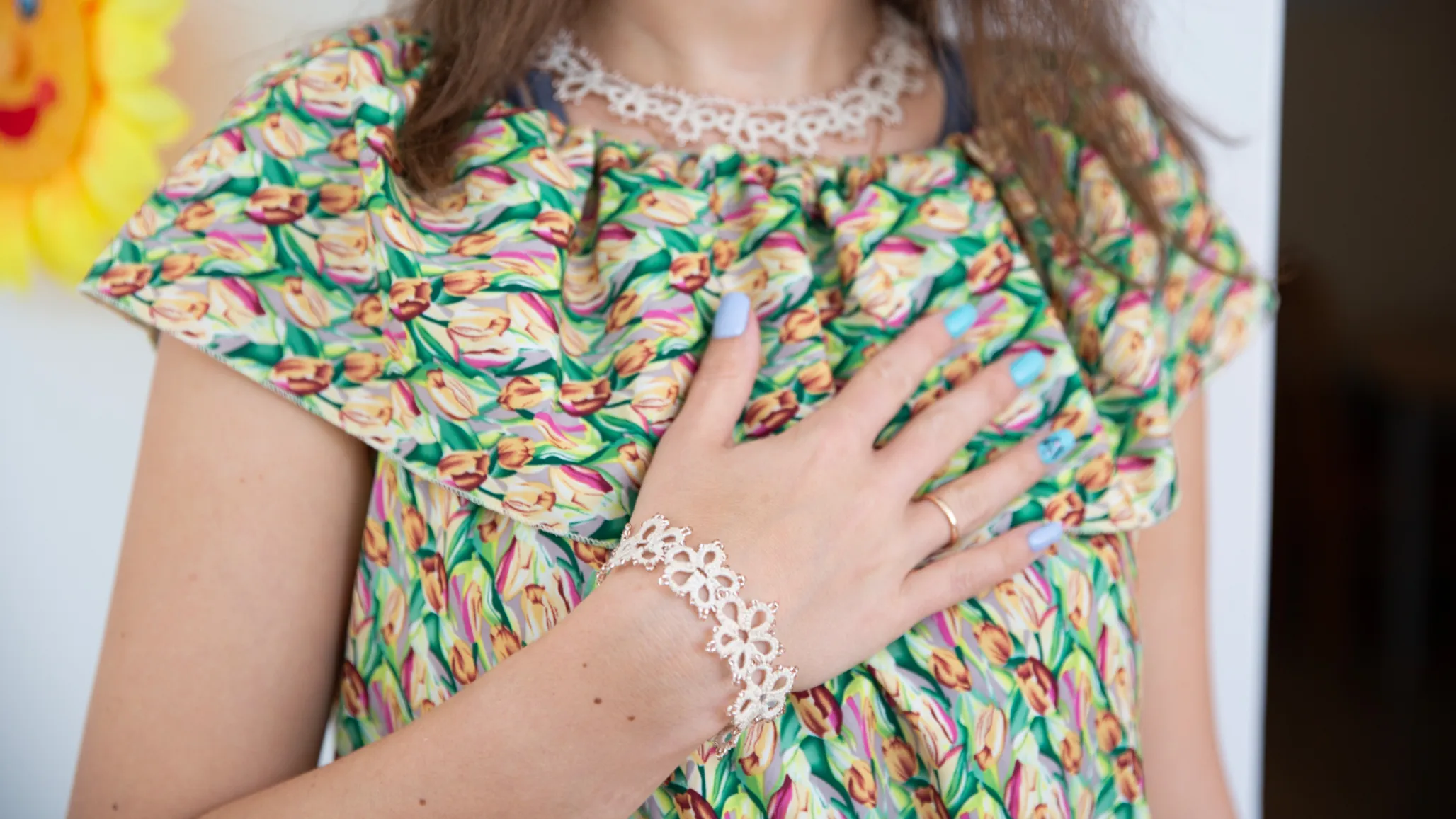10 Ways You’ve Improved Mental Health Care Around the World
With your support, Project HOPE is expanding access to mental health care around the world — on the front lines of war, in the wake of natural disasters, and in displacement camps, health facilities, remote neighborhoods, and beyond.
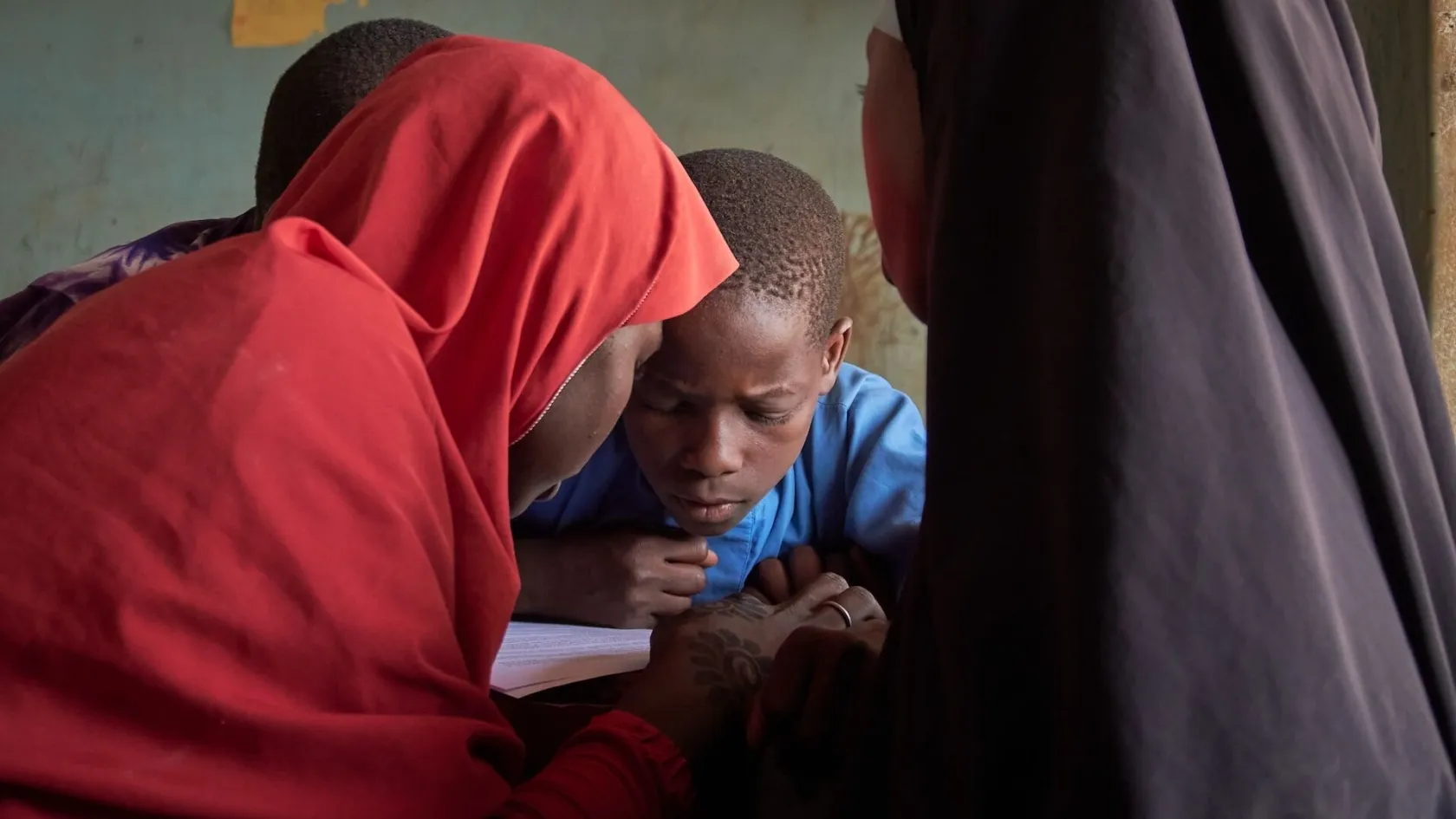
Mental health issues are a reality of life in every community, in every country, on every continent — and they are on the rise. Yet the overwhelming majority of people suffering from mental health conditions worldwide go without attention or treatment.
Every day, Project HOPE works to expand access to mental health care and psychosocial support, ensuring everyone — including refugees, seniors, mothers, children, and health workers — has access to the support they need to persevere in the face of challenges.
Here are 10 unique ways you’re helping us protect mental health and provide much-needed care in the communities where we work.
1. You helped senior refugees in Poland learn to live in the unknown.
Over 6 million Ukrainians have left their country since Russia’s invasion began in early 2022. In Poland, over 10% of the Ukrainian refugee population is made up of those over 65. The difficulties of displacement are especially hard on older adults who rely on health care access and are separated from their families. Many of them have now been displaced for two years, which has taken a profound toll on their mental health.
In Poland, Project HOPE supported Accessible World Foundation and Zustricz Foundation, two local organizations that provided mental health support to refugees whose lives have been upended by the war, especially older members of the community.
Accessible World Foundation provided psychosocial programming like art therapy, yoga, language classes, and group activities free of charge, and many of the refugees who accessed them learned about the services through referrals or word of mouth.
Zustricz Foundation sent a psychologist to a refugee shelter weekly for one-on-one therapy sessions with residents. Many of their psychologists are refugees themselves.
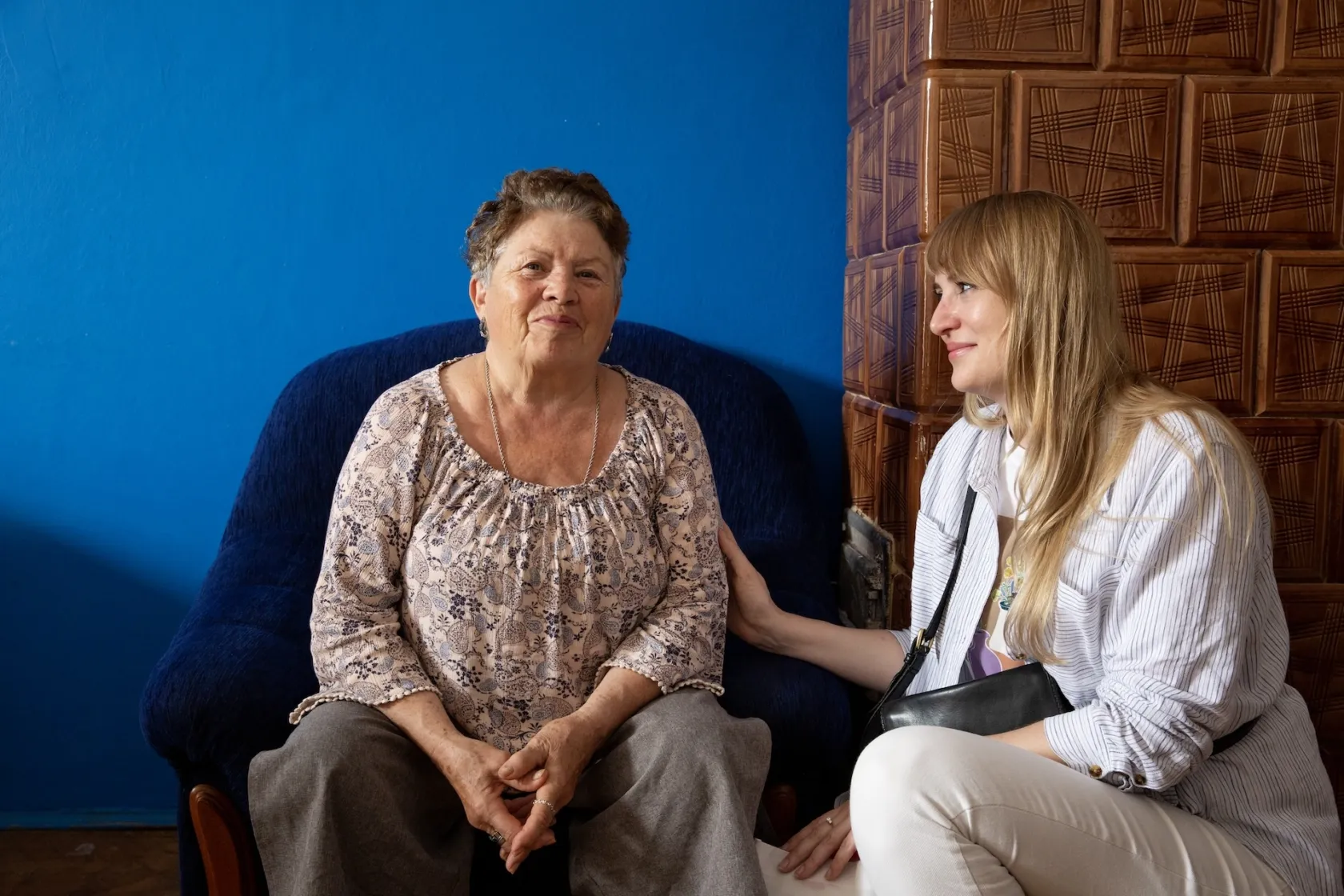
2. You’ve supported military and veterans’ families in Ukraine.
Russia’s invasion has profoundly altered Ukrainians’ lives. Many civilians have been drawn into military service and support roles during the war, reshaping their identities and futures in profound ways.
Tetyana, 45, became a military spouse when her husband enlisted in Odesa. Though immensely proud of her husband, their new reality has brought her a lot of stress as she fears for his safety and feels the pain of their separation.
Six months ago, Tetyana decided to seek assistance at Veterans Hub Odesa, a local organization staffed by Project HOPE psychologists with support from USAID’s Bureau for Humanitarian Assistance. She attends group classes where they draw and talk, which helps her find and remember her inner strength.
“Now I feel resourceful. I know where to turn for help if things get difficult,” Tetyana says. “Psychological support is not only good for you; it is also good for the people around you.”
The hub provides legal assistance, psychological assistance, and social support to veterans, their spouses and their families, and to parents who have experienced loss.
“While Ukraine is at war, the number of veterans will increase every year, every month,” says Uliana Hromovych, deputy head of Veterans Hub Odesa. “They need to be supported and helped, and society must learn how to do that. Civilians often don’t know how to communicate with veterans, people with disabilities, or amputees. In this center, we help both civilian society and veterans adapt to these new aspects of life.”
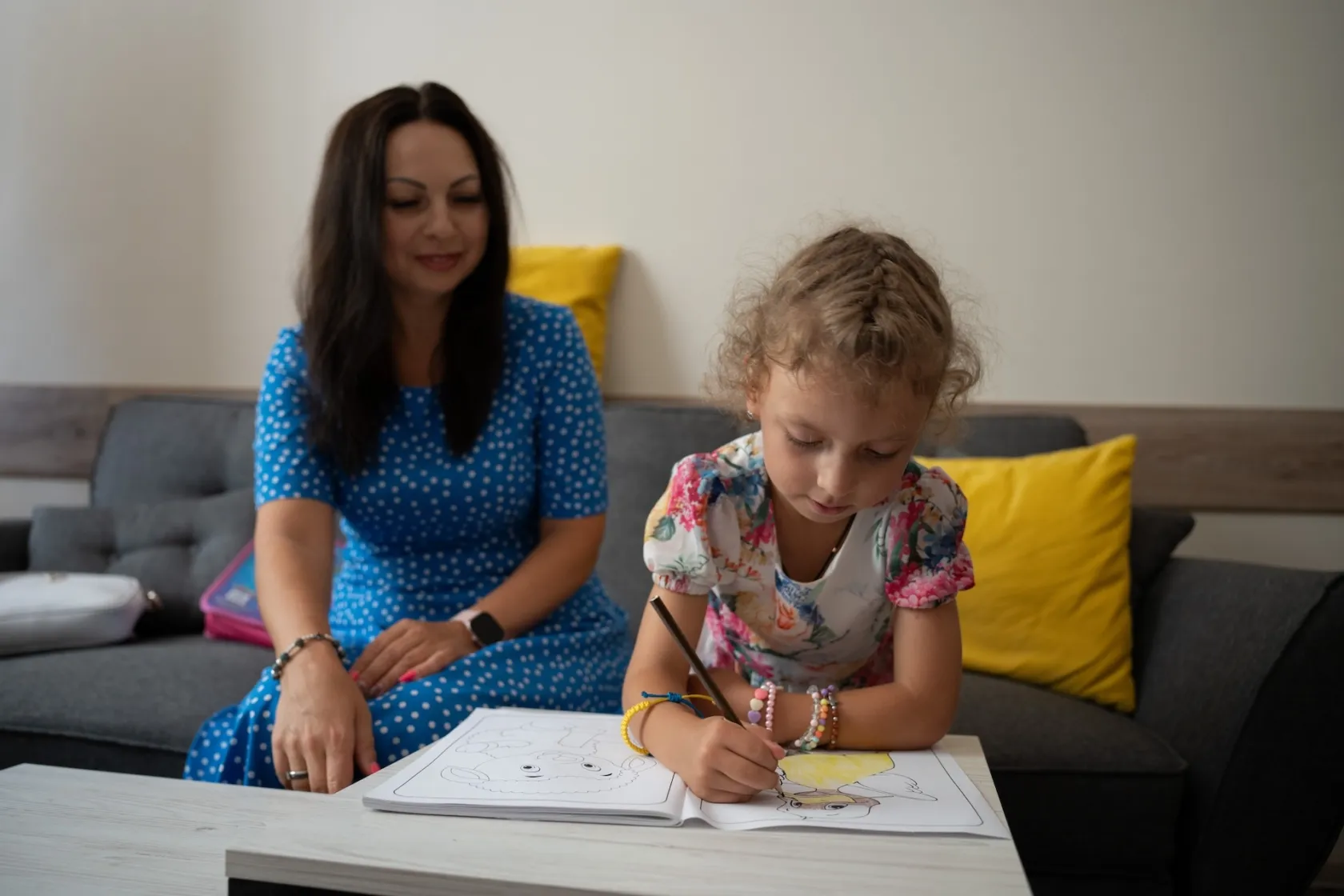
3. You’ve created moments of joy for displaced children in Gaza.
The war in Gaza has had a devastating impact on children. It’s expected that almost all of Gaza’s children will need some form of mental health support to cope with the trauma of the crisis after losing family members, friends, homes, and schools during more than a year of war.
Project HOPE has partnered with two local Palestinian organizations, Sharek Youth Forum and Hakini Foundation, to provide mental health and psychosocial services to women and children in Gaza and the West Bank. As of January 2024, Sharek Youth Forum had reached more than 3,200 Palestinian women and children through 128 psychosocial group sessions in Rafah and Deir al Balah. In March, we held an activity with Sharek Youth Forum to promote play and well-being for children at our primary health clinic at Jaafar Al-Tayyar Camp, a displacement camp in Rafah.
“We’ve struggled to find laughter amidst the overwhelming sadness and tragedies, amidst the madness of war ravaging Gaza,” says Dr. Nour, a doctor with Project HOPE. “Yet today, we found a moment of joy, sharing it with displaced children in the camps. For just one hour, we escaped the pain, sorrow, illness, and displacement, laughing together with heartfelt abandon. Sincere thanks to Project HOPE for providing us with this opportunity to spread joy and happiness in the hearts of these children and in our own hearts as well.”
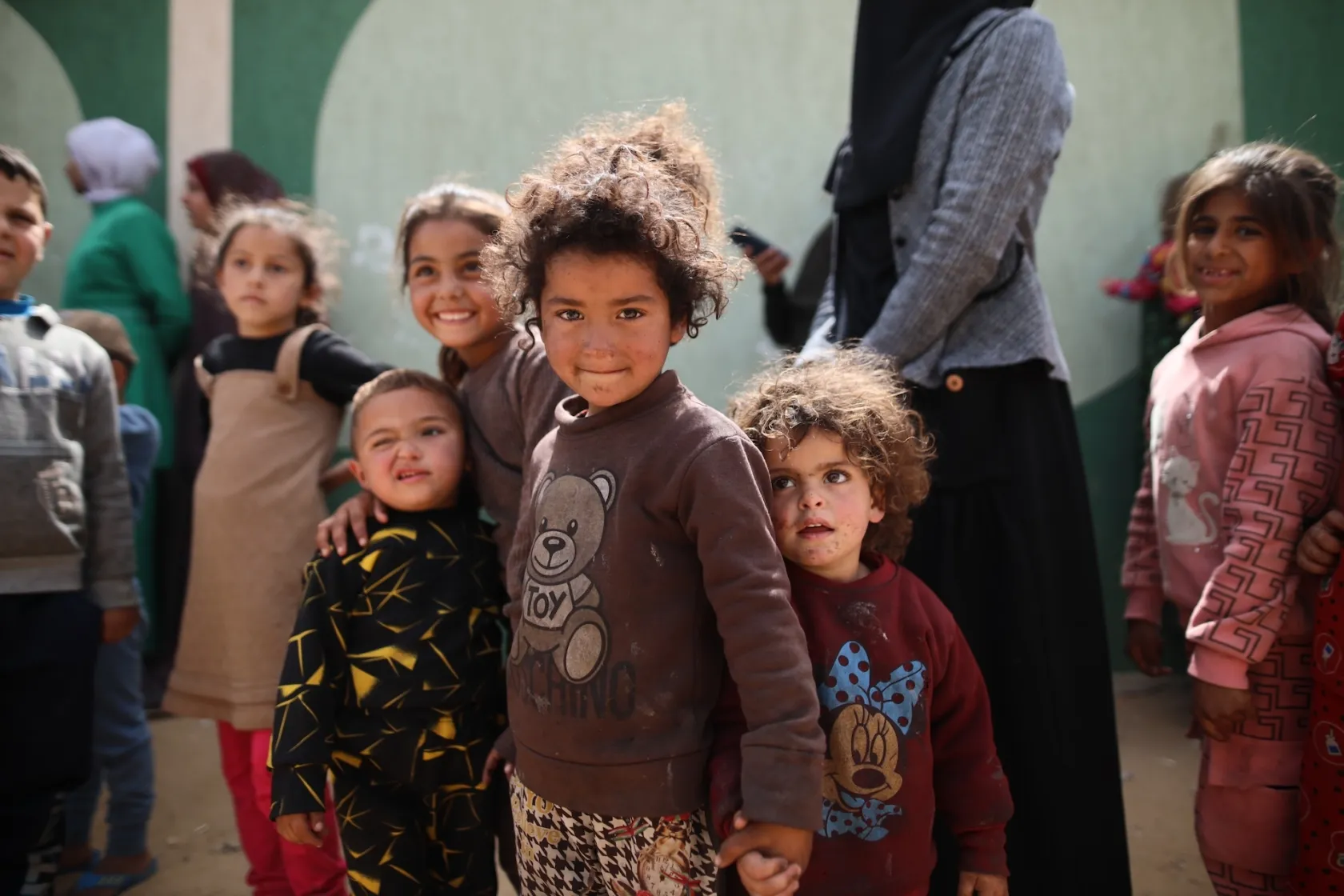
4. You’ve steered young men in Nigeria toward healthier, meaningful futures.
The need for mental health support among young people in Nigeria is widespread, particularly among young men. Growing up with a combination of economic, social, and political factors working against them, many young men are turning to drug use and violence to cope with adverse circumstances. And both have deep impacts not just on physical safety, but also on mental health.
To help reduce drug use and violence and fortify mental health, Project HOPE is facilitating youth mental health groups led by local community members. During meetings, groups talk about the dangers that drug use poses to mental health, common withdrawal symptoms, new coping mechanisms for challenges they face, and ways to manage feelings of anger and frustration. They also discuss how they can support one another.
“The most rewarding part of this work is that it’s a service to humanity,” says Fatima Haruna, a group facilitator known fondly by all as “Aunty Fati.” “You feel happy seeing them integrated back into their family and society in general. You can clearly see the change and happiness in their lives. I hope that through the mental health discussions we have held with them, they can be able to set their lives on course.”
Between February and July 2024, Project HOPE facilitated 19 mental health groups across Kano, Kebbi, Sokoto, and Ogun states, helping over 585 young people find their voice, express their feelings, and choose new paths forward.
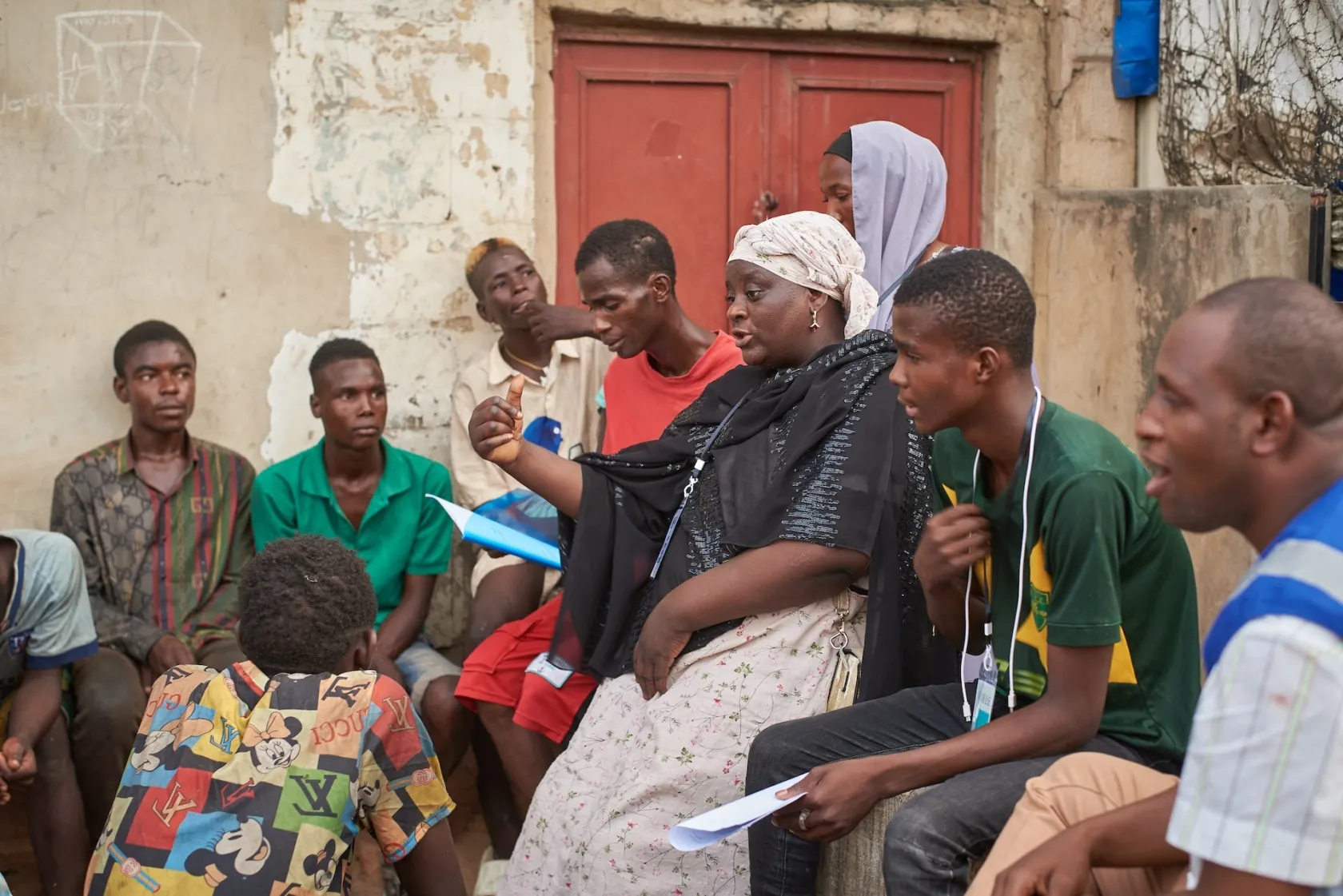
5. You’ve supported rural communities recovering from disaster in Morocco.
The powerful earthquake that struck Morocco in September 2023 caused significant damage and destruction in the rural Atlas Mountains south of Marrakech. In these communities, the disaster — the strongest earthquake to hit the country in over a century — will be felt for generations.
An initial assessment conducted through our partner SAMU found an overwhelming need for mental health support, with many grappling with post-traumatic and acute stress symptoms including sleep disturbances, profound grief, emotional anguish, and noticeable alterations in behavior.
“During interviews, many women became visibly emotional and shed tears when we approached them or asked about their experiences,” says Rawan Hamadeh, a Project HOPE mental health program officer.
Project HOPE’s local partner, High Atlas Foundation, provided workshops on mental health, psychosocial support, resilience, and positive coping strategies to eight impacted villages, prioritizing those most affected and with the least access to resources.
Between October 2023 and August 2024, over 4,200 women, men, and children participated in psychosocial workshops, finding a safe environment to step away from the trauma and loss and focus on their personal growth, build resilience, and develop skills for a new future.
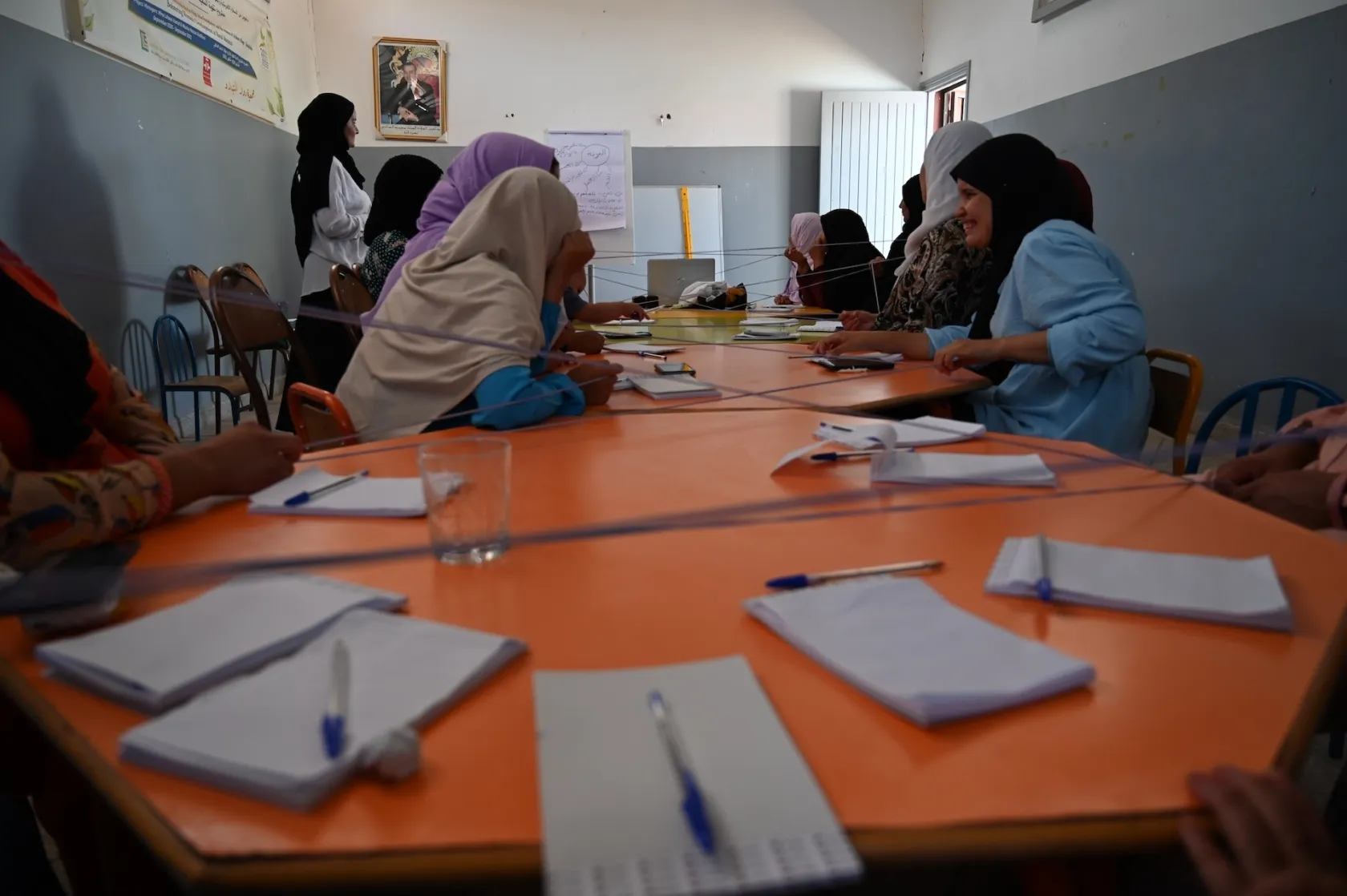
6. You’ve facilitated therapy for migrants in Latin America.
In Latin America and the Caribbean, widespread violence and instability have triggered unprecedented numbers of migrants seeking safety. Millions of families from Venezuela, Honduras, and Haiti have been displaced, undertaking grueling and dangerous journeys, sometimes on foot.
In Ecuador, Project HOPE is providing individual and group therapy for migrants passing through health facilities and shelters. These families are grappling with the heavy weight of uncertainty, often unsure where their next meal will come from, and where they will go next.
“The majority of people carry this uncertainty with them,” says Dr. Marilyn Garcia, a psychologist on Project HOPE’s team in Ecuador. “For example, ‘I am here at the shelter, but when this time is over, where am I going to go?’ Especially if they have children.”
Dr. Garcia and her team work to make sure these families have a space to feel safe, to feel heard, and to figure out their next steps.
“We are able to provide something to each person we come across,” Dr. Garcia says. “Maybe beforehand, they were on this journey without getting any support, so to be able to provide care and tools for them is very gratifying.”
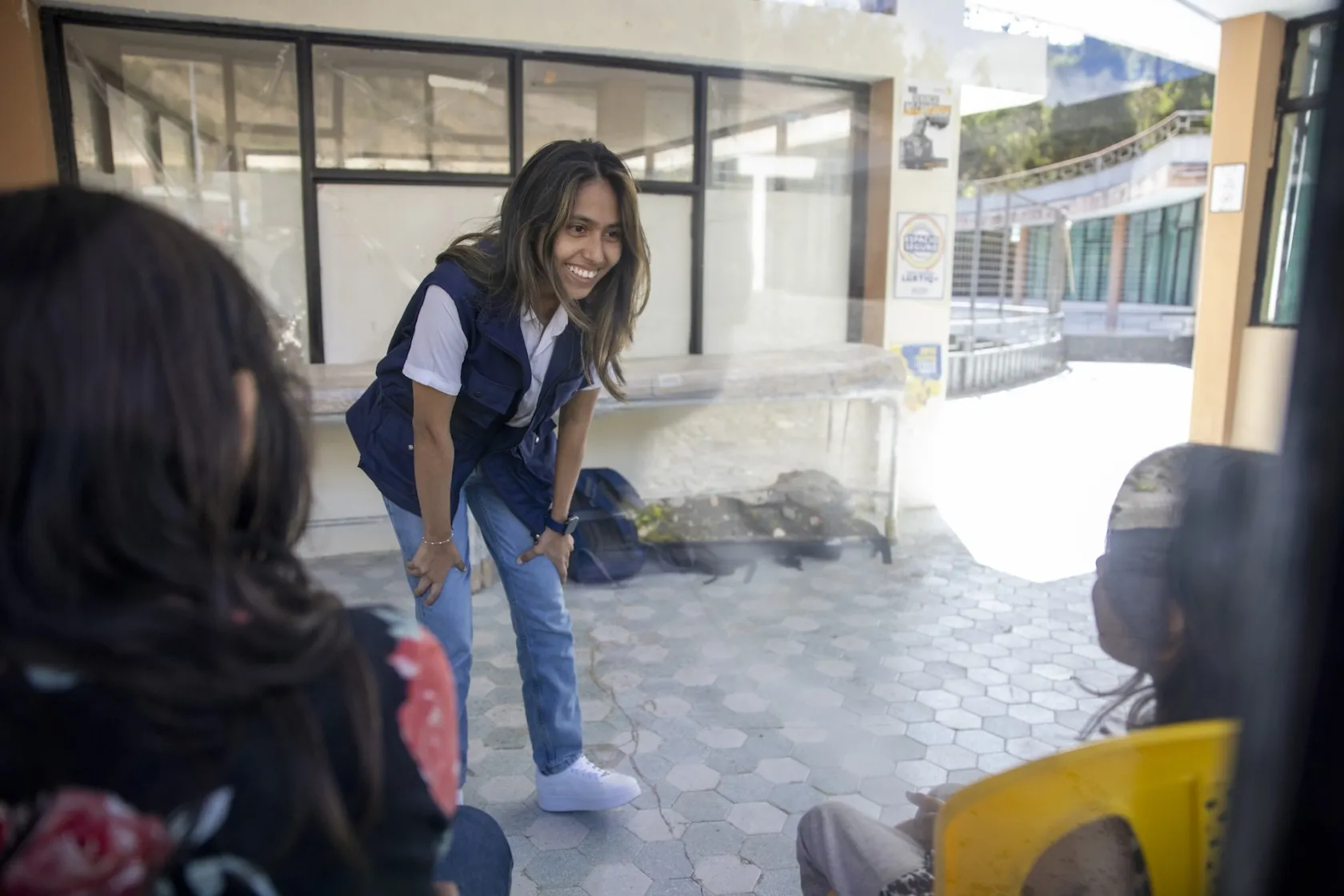
7. You’ve helped build resiliency for the Yuchi tribe in Oklahoma.
Indigenous communities in the U.S. experience higher rates of mental health disorders than the general population. Stemming from historical trauma, cultural disconnection, and systemic inequities, these challenges are compounded by limited access to appropriate mental health resources.
In March 2024, Project HOPE took a step toward addressing health disparities by implementing a mental health and resilience training with the Yuchi community in Oklahoma. The pilot engaged 30 participants and training covered topics including generational trauma, the impact of COVID-19, the impact of colonization and U.S. laws, and traditional teachings. Tailored to the unique cultural, historical, and systemic context of the Yuchi people, the curriculum was developed in collaboration with tribal cultural and language specialists, behavioral health therapists, and community members.
The training will soon be introduced to other Tribal Nations. By centering Indigenous voices and perspectives, this initiative will empower Indigenous individuals to safeguard their mental well-being, improve access to culturally responsive care, and combat mental health stigma throughout the U.S.
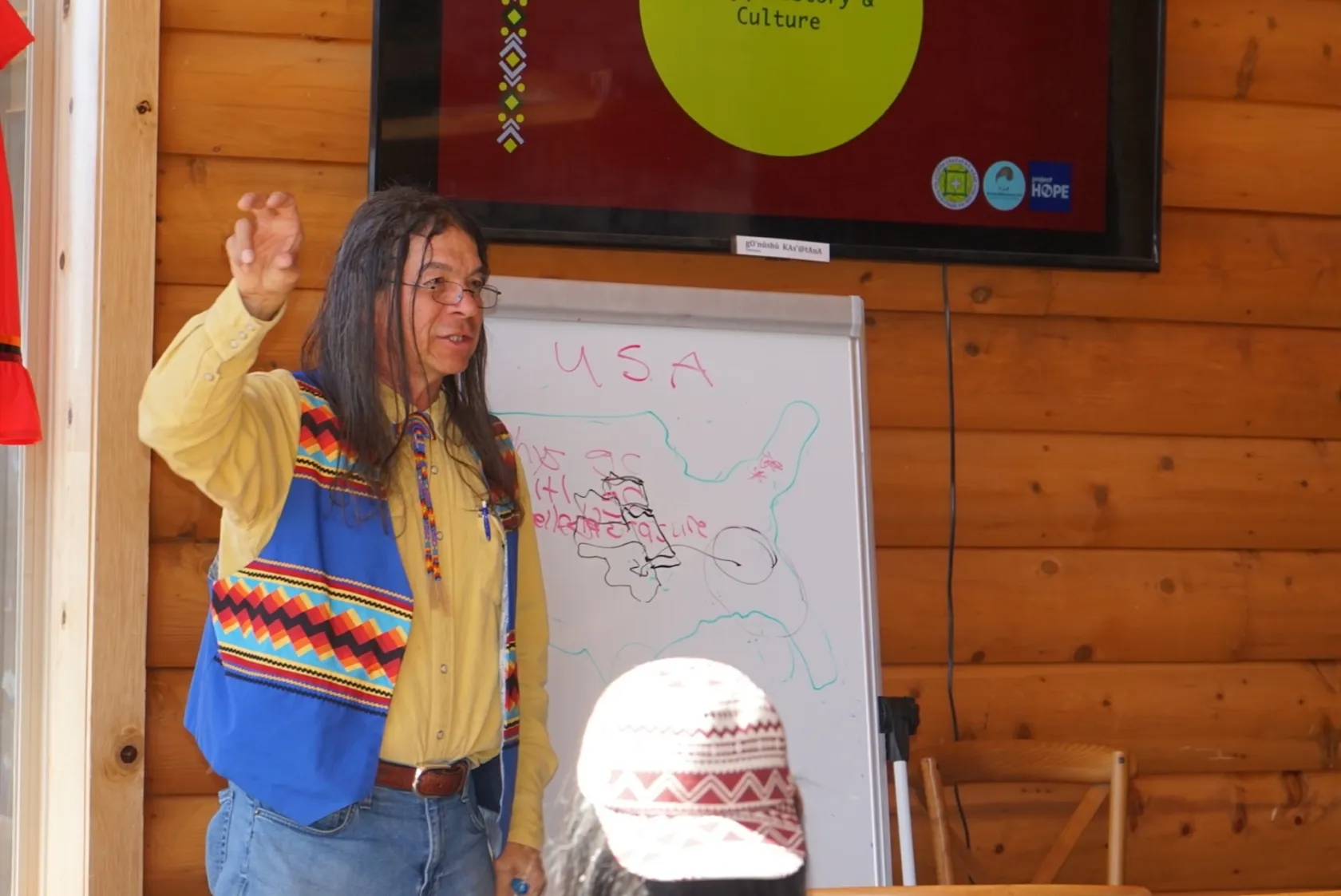
8. You’ve increased access to care for Venezuelan women in Colombia.
Years of hardship, displacement, and trauma experienced during migration have led to significant mental health challenges for Venezuelan women. The need for support is especially urgent for those who are pregnant and those who have survived violence — but access to affordable care is a major barrier.
In Colombia, Project HOPE has been connecting Venezuelan women in the municipalities of Cúcuta and Villa del Rosario with reproductive and maternal health services, increasing access to free and quality care since 2019 in partnership with primary and tertiary care health facilities and a local community-based organization. As part of this work, we also provide mental health support, facilitating psychological consultations and group sessions where pregnant and postpartum women can speak about their experiences.
This year, in response to widespread need, we are increasing access to primary health and psychosocial support services in Cúcuta and Villa del Rosario and expanding to Convención, a municipality affected by ongoing armed conflict. We’ve established health services at shelters, where underserved and uninsured migrants and refugees can find psychological consultations in addition to other essential services.
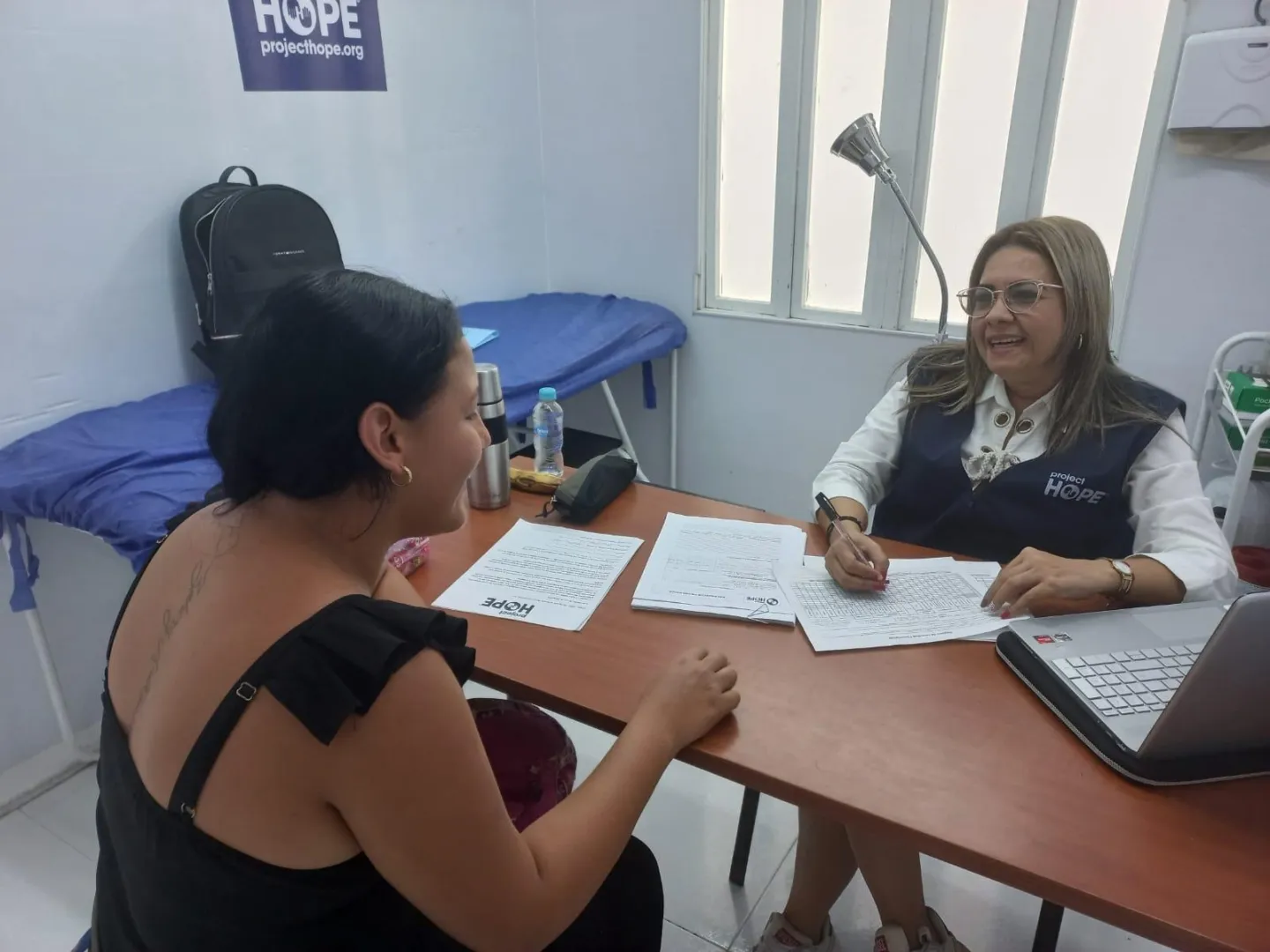
9. You’ve normalized mental health treatment for health workers.
Health workers are facing an urgent mental health crisis. Reports of stress, depression, and anxiety have significantly increased since COVID-19, and levels of burnout have reached epidemic proportions. But many health workers suffer in silence, afraid to seek treatment.
To address the crisis, Project HOPE is implementing mental health and resilience trainings for nurses, doctors, and emergency responders with support from the Center for Disaster Philanthropy. The training curriculum is based on NYC Health + Hospitals’ HERO-NY series and includes sessions on stress, trauma, resiliency, personal wellness, and how to seek help.
Since 2021, we’ve delivered trainings in over 100 countries across five continents, helping tens of thousands of health workers fight stigma and talk about their mental health. We’ve also worked directly with ministries of health and local partners to improve available mental health services and raise awareness.
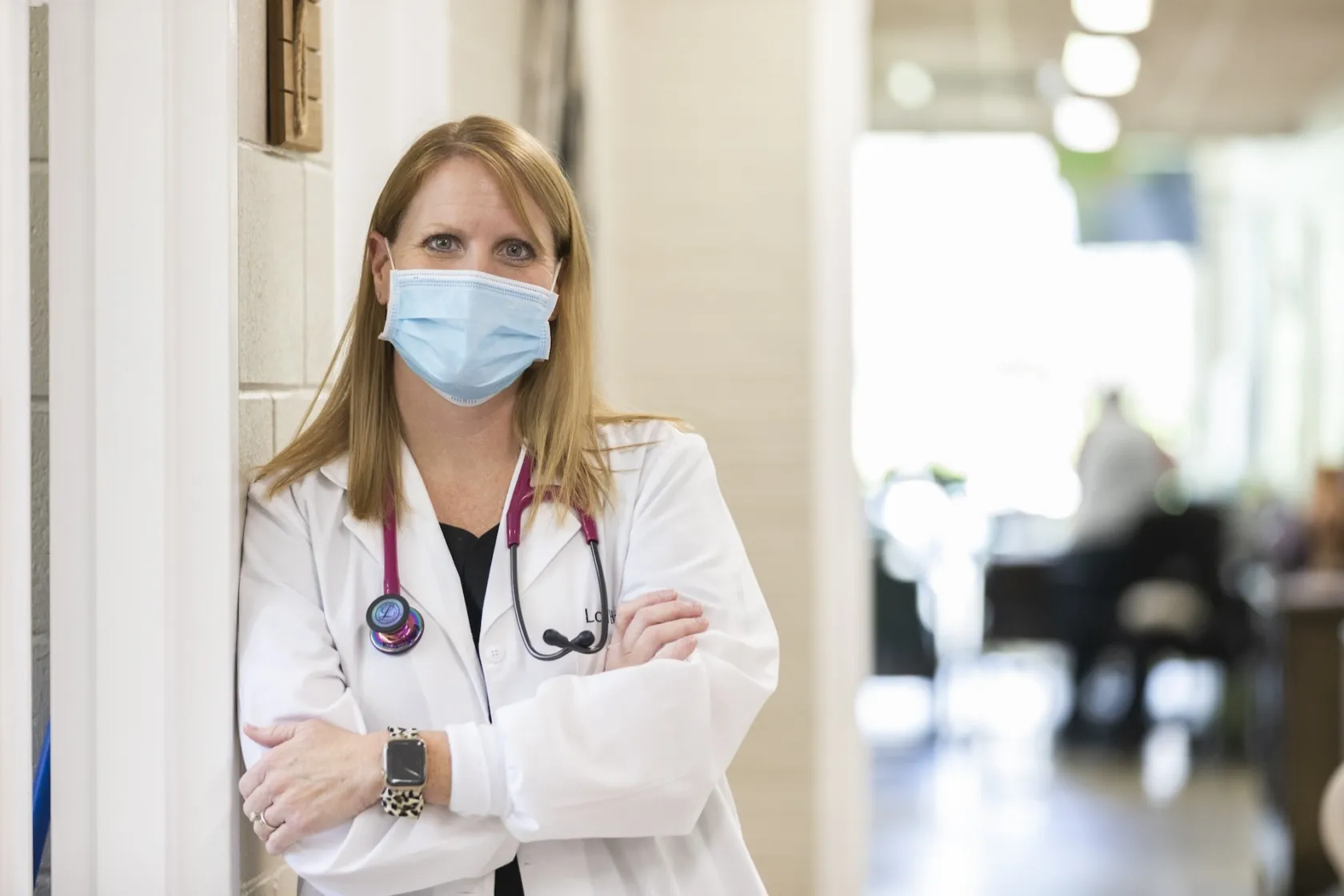
10. You’ve helped provide psychological first aid in moments of crisis.
According to the World Health Organization, one in five people who experience war or conflict will develop mental health conditions or disorders. As devastating violence continues to escalate around the world, the demand for mental health care has never been greater.
One way to respond to emotional needs in such moments of crisis is through Psychological First Aid (PFA), a basic psychosocial intervention that provides human, supportive, practical, and culturally adapted support after a crisis. It is a recommended first-line response as it reduces high levels of acute stress and prevents symptoms of emotional distress from worsening over time.
At Project HOPE, we are committed to showing up on the front lines and providing psychosocial care in times of emergency and crisis in Gaza, Haiti, Sudan, and beyond. We train team members and health workers, nurses, and community health workers to provide PFA so survivors can find the support they need when they need it most.
